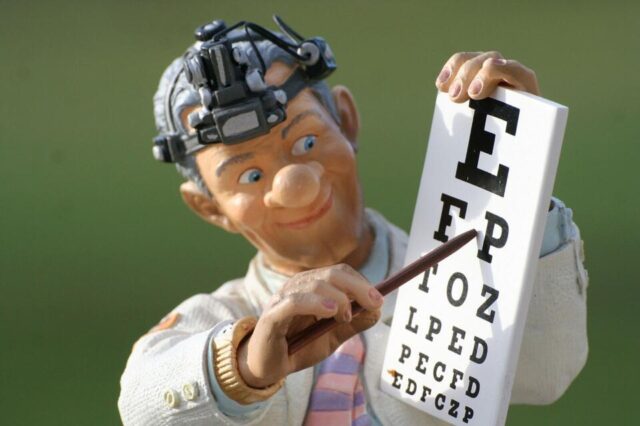I firmly believe that words should represent what they mean, because – like me – not everyone can read between the lines, and sometimes lines can get crossed. And these days words are used pretty casually, even in an official capacity.
IN A MADAM and Eve cartoon I saw recently, Young Thandi asks Mother Anderson, “What’s corruption?”
The old woman explains: “You’ve been with us when we get stopped by traffic cops … right?” Thandi responds, “Ja, so?”
Mother Anderson continues: “If we give them some money for ‘cool drinks’ … then they don’t give us a traffic ticket.”
I think everyone agrees that this is a pretty sharp definition of corruption. But Thandi went a step too far. She asked, “So which one is the ‘corruption’? Giving cool drink money? … or taking cool drink money?”
And, as usual, Mother Anderson kicks her out of the house.
Ja nee, but at least Thandi asks questions when she doesn’t understand something. As for me, I can be pretty literal at times, especially if ‘literal’ means ‘lekker dom’, and this can lead to some comical misunderstandings.
Yes, seriously; sometimes I just don’t get the memo, catch the hint, make the connection or line up the dots, and I end up misunderstanding completely what’s going on.
I could have told this tale before, but one such incident occurred quite a number of years ago, right here in Kimberley at our local traffic department in Community Road in Ashburnham.
The time had come for me to have my driver’s licence renewed, which meant forms and fingerprints and queues and, of course, the obligatory eye-test. The test went well, up to the fourth row where there was a symbol that was all blotched, smudged and fuzzy.
Initially I thought my eyes had suddenly gone weak, which seemed odd, because my spectacle prescription hadn’t changed in several years. I felt a bit uneasy, but I scanned down to rows five, six and seven – I could see all the symbols clearly, right down to the tiniest of them, but the widget on line four, no dice.
I told the examiner as much, and he sighed.
“Oh, then I am sorry. I cannot recommend you for your licence if you fail the eye test.” My heart sank, but perked up again when he said, after what had been a dramatic pause, “However …”
I lifted my grubby chin off the grubby chin rest and looked at him, and he said: “I can sign off on your application for the price of a cold drink.”
Now to me, at the time, buying a cold drink for someone who did you a tiny favour didn’t seem like a big deal, so I nodded my agreement and his ‘John Hancock’ was scribbled at the bottom of my form.
The rest of the process went along without a hitch, and after I had made all the required, official payments I remembered that there was a vending machine just outside, so I popped out quickly and bought a can of Pine Nut.
I suspected that Pine Nut wasn’t his favourite flavour when I plonked it on his desk, judging by the grunt that emitted from his clenched jaw … maybe I should have gotten him a Ginger Beer, or the always popular Coca-Cola.
I have to admit that, at the time, I genuinely didn’t get the whole “buy a cool drink” code talk. I was that naive. But years later when I realised what he had been hinting at, I was both angry at him and disappointed in myself for even getting him the drink … that he actually never asked for.
Had he just said what he meant, I could have been appalled immediately and not almost 20 years later.
I firmly believe that words should represent what they mean, because – like me – not everyone can read between the lines, and sometimes lines can get crossed. And these days words are used pretty casually, even in an official capacity.
For example, in the story in last week’s paper about the pending water shutdown in the city, the following quote puzzled me.
In the third paragraph of the story, it reads: “The Bulk Facility for Infrastructure programme co-ordinator at Sol Plaatje Municipality, Lucky Moyahi, stated that the amount of water lost due to a leak on the 900-millimetre pipe at Midstation in Roodepan could fill the Newton Reservoir in two days.”
I found myself staring at the page, wondering if this was a misprint …
I asked myself, “So does this mean that after this leak is fixed during the upcoming water shutdown, then two days later the Newton reservoir will be full?”
I would really, really love to believe that, but by the way things have been going in this city, I am going to keep all the plastic water bottles around the house for quite a while yet.
And another tiny thing, if the Newton reservoir is not full within two days after the leak at the 900-millimetre pipe at Midstation in Roodepan is fixed, how on this dry earth could we trust anything these people are saying?
Or are things being said just to sound dramatic, or to stir residents’ emotions, to make them buy-in to the shutdown?
That’s not wise. In the long run, honesty is always better than sensationalism.
It’s author DaShanne Stokes who wrote something so simple, even I think I understand what is meant. Stokes says: “If your actions don’t live up to your words, you have nothing to say.”








